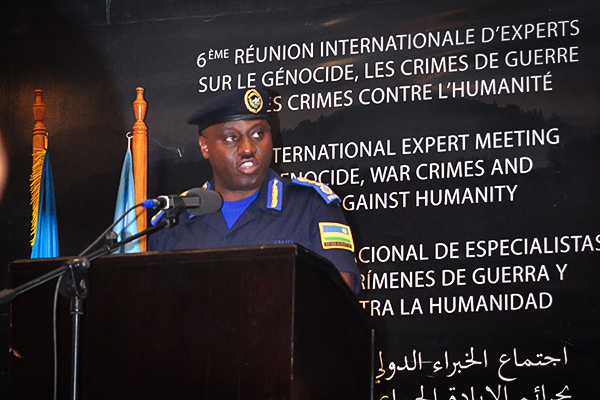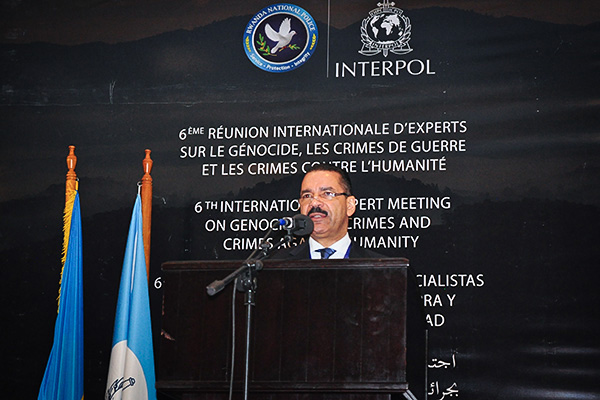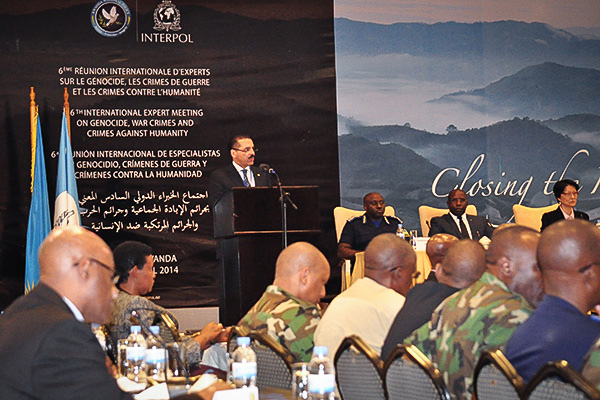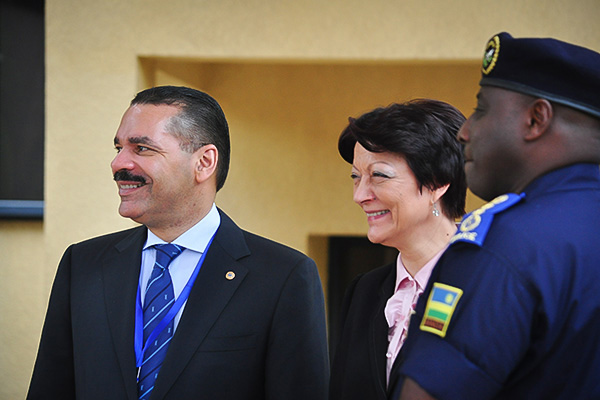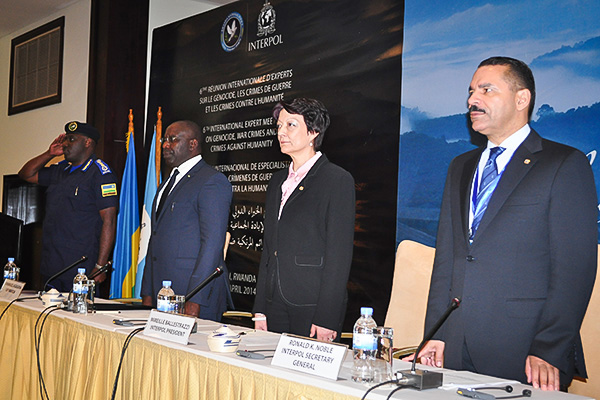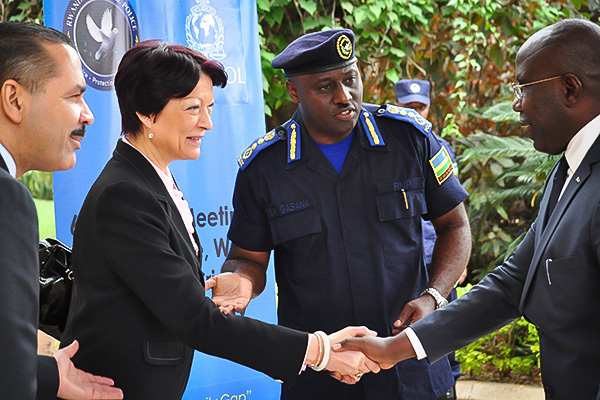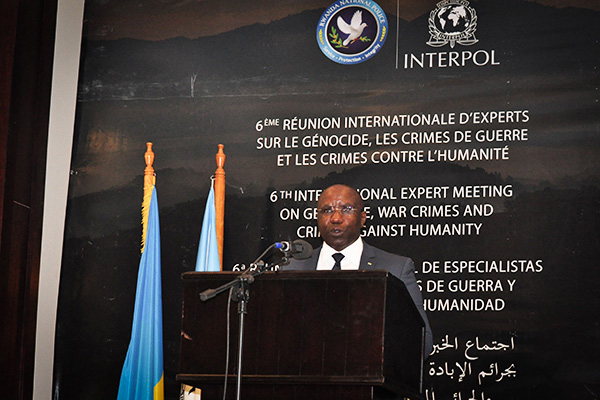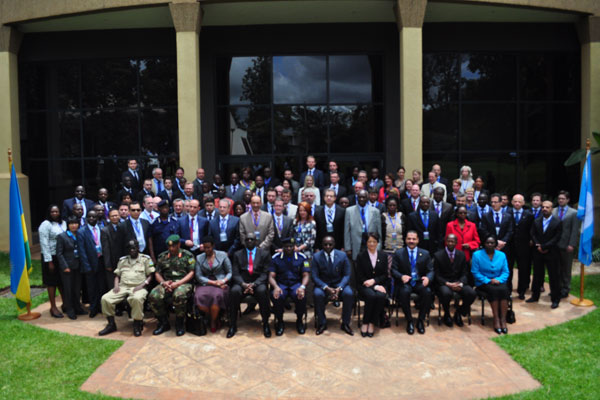KIGALI, Rwanda – Identifying ways for enhanced cooperation and information exchange to identify and prosecute individuals who continue to evade justice for genocide, war crimes and crimes against humanity, is the focus of a three-day meeting in Kigali.
Under the theme ‘Closing the Impunity Gap’, the three day (14 – 16 April) INTERPOL 6th International expert meeting on genocide, war crimes and crimes against humanity is being hosted and supported by the Rwandan national police as the world commemorates the 20th anniversary of the genocide in Rwanda.
Prime Minister of Rwanda, Pierre Damien Habumuremyi, officially opened the meeting, which brings together some 100 law enforcement and judicial experts from 24 countries, as well as representatives from 10 international organizations.
“This conference is relevant to global efforts in bringing to justice the perpetrators of genocide and other crimes against humanity. We appreciate the key role played by INTERPOL in helping to locate and apprehend fugitives who cross international boundaries,” said Mr Habumuremyi, adding that the meeting was also an opportunity to share expertise to prevent, investigate and prosecute these crimes.
INTERPOL President Mireille Ballestrazzi stressed that genocide is not an ordinary crime, as it affects every principle of humanity and the most basic international standards, its impact destabilizing regions and countries.
“Cooperation between all those involved is essential in order to successfully target and bring to justice those individuals wanted for genocide, war crimes and crimes against humanity,” said President Ballestrazzi pointing to the successes achieved following the creation of INTERPOL’s Rwandan Genocide Fugitives Project in 2004.
Under this project, in the past 10 years collaboration between INTERPOL, its National Central Bureau in Kigali, the Rwandan Prosecutor General and the International Criminal Tribunal for Rwanda has led to the identification and arrest of 40 individuals in 14 countries.
“INTERPOL, through its Fugitive Investigative Support unit and law enforcement tools, has been a key partner to the Rwanda National Police in bringing some of the fugitives to justice, and we encourage other member countries to follow suit and contribute in closing the impunity gap,” said Inspector General of the Rwanda National Police and Delegate for Africa on INTERPOL’s Executive Committee Emmanuel Gasana.
INTERPOL Secretary General Ronald K. Noble said: “No action or deed can absolve the international community for its failure to have protected Rwanda’s people, or in essence, for having failed humankind.
“INTERPOL considers it crucial to assist in bringing to justice the perpetrators of the genocide which took place in Rwanda in 1994, indeed all those responsible for genocide, war crimes and crimes against humanity.
“Whether this takes one, five or 10 years or half a century, our determination will remain the same until the very end. We owe this commitment to Rwanda and its people, and we will honour it,” concluded the INTERPOL Chief.
Underlining this commitment not just to Rwanda, but the global community, the head of INTERPOL announced the world police body is creating a dedicated ‘war crimes’ unit at its General Secretariat headquarters in Lyon.
The unit will be responsible for supporting member countries in investigating and prosecuting those responsible for committing acts of genocide, war crimes and crimes against humanity.
Keynote speakers at the expert meeting include Hassan Jallow, Chief Prosecutor, International Criminal Tribunal for Rwanda (ICTR) and Prosecutor of the Mechanism for International Criminal Tribunals; Serge Brammertz, Chief Prosecutor, International Criminal Tribunal for the Former Yugoslavia (ICTY); Michel de Smedt, Head of Investigations, Office of the Prosecutor, International Criminal Court; as well as a video message from Adama Dieng, UN Special Adviser on the Prevention of Genocide.




